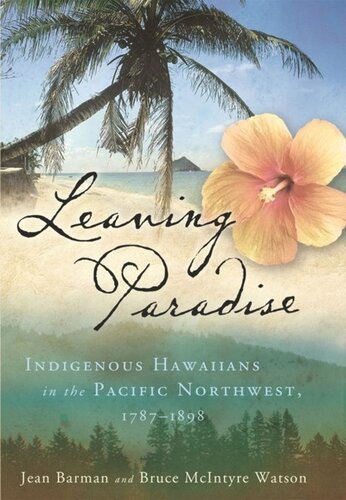

Most ebook files are in PDF format, so you can easily read them using various software such as Foxit Reader or directly on the Google Chrome browser.
Some ebook files are released by publishers in other formats such as .awz, .mobi, .epub, .fb2, etc. You may need to install specific software to read these formats on mobile/PC, such as Calibre.
Please read the tutorial at this link: https://ebookbell.com/faq
We offer FREE conversion to the popular formats you request; however, this may take some time. Therefore, right after payment, please email us, and we will try to provide the service as quickly as possible.
For some exceptional file formats or broken links (if any), please refrain from opening any disputes. Instead, email us first, and we will try to assist within a maximum of 6 hours.
EbookBell Team

4.8
64 reviewsNative Hawaiians arrived in the Pacific Northwest as early as 1787. Some went out of curiosity; many others were recruited as seamen or as workers in the fur trade. By the end of the nineteenth century more than a thousand men and women had journeyed across the Pacific, but the stories of these extraordinary individuals have gone largely unrecorded in Hawaiian or Western sources. Through painstaking archival work in British Columbia, Oregon, California, and Hawaii, Jean Barman and Bruce Watson pieced together what is known about these sailors, laborers, and settlers from 1787 to 1898, the year the Hawaiian Islands were annexed to the United States. In addition, the authors include descriptive biographical entries on some eight hundred Native Hawaiians, a remarkable and invaluable complement to their narrative history.
"Kanakas" (as indigenous Hawaiians were called) formed the backbone of the fur trade along with French Canadians and Scots. As the trade waned and most of their countrymen returned home, several hundred men with indigenous wives raised families and formed settlements throughout the Pacific Northwest. Today their descendants remain proud of their distinctive heritage. The resourcefulness of these pioneers in the face of harsh physical conditions and racism challenges the early Western perception that Native Hawaiians were indolent and easily exploited.
Scholars and others interested in a number of fields—Hawaiian history, Pacific Islander studies, Western U.S. and Western Canadian history, diaspora studies—will find Leaving Paradise an indispensable work.